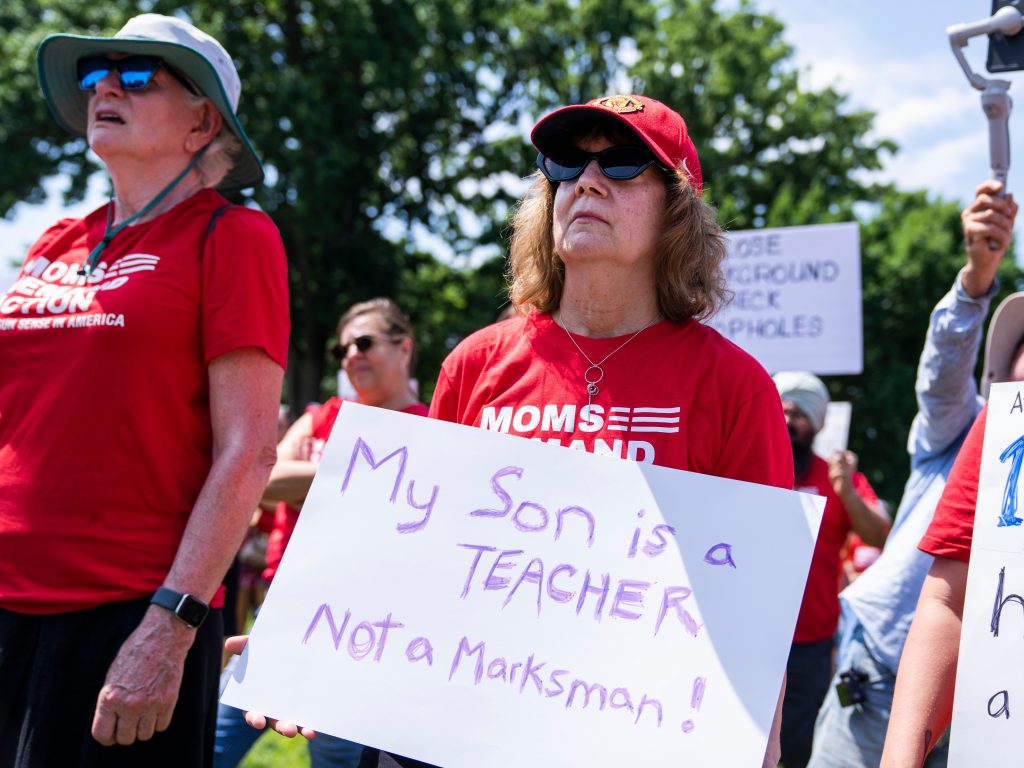- It just got easier for teachers to carry weapons at school in Ohio.
- Gov. Mark DeWine on Monday signed a bill that erased hundreds of hours of training requirements.
- Educators now only need 24 hours of training and a local school board's approval to have a gun at school.
Ohio lawmakers this week made it easier for teachers and educational staff in the state to carry guns in school, slashing the number of required training hours from more than 700 to just 24.
The move comes amid a nationwide reckoning over gun control and school safety in the aftermath of the deadly Uvalde school shooting last month in which an 18-year-old gunman killed 21 people, including 19 students at Robb Elementary School.
Educators in Ohio were already allowed to carry weapons at school if they underwent 700 instructional hours of peace officer training and received permission from their school board. But such stringent requirements had rendered educators' ability to carry weapons largely untenable, said Ohio Gov. Mark DeWine, who on Monday, signed a bill that erased hundreds of hours of previously-required training.
The new law imposes only a 24-hour training requirement for teachers who wish to carry weapons. Local school boards will still need to offer final approval.
In a press conference on Monday, DeWine said that House Bill 99 has been moving through the Ohio legislature since last year, but acknowledged that the Uvalde shooting "certainly increased the urgency to enact it."
"My office worked with the General Assembly to remove hundreds of hours of curriculum irrelevant to school safety and to ensure training requirements were specific to a school environment and contained significant scenario-based training," DeWine said in a press release earlier this month.
The bill has drawn the ire of teachers' unions and law enforcement alike, which argued that arming educators is risky and dangerous. The Ohio Federation of Teachers and Ohio Education Association urged DeWine to veto the bill and the Fraternal Order of Police of Ohio previously spoke out against the law, arguing that 24 hours is not enough training time.
The Fraternal Order of Police's government affairs director, Mike Weinman, testified earlier this year that the bill would result in improperly-trained teachers and confusing chains of command during crises.
Teachers who choose to be armed during the school day would immediately become first responders when emergency strikes, Weinman testified, according to NPR. "She will be required to abandon her students and respond to whatever threat may be in the building at a moment's notice."
But DeWine has stressed that local school districts still have the authority to bar firearms from school buildings.
"This does not require any school to arm teachers or staff," he said. "Every school will make its own decision.
Insider's Hilary Brueck in 2018 found that research indicates arming teachers does not prevent school shootings. Studies have found that increased guns in the classroom are likely to lead to more injuries and deaths.
While gun-toting teachers are far from commonplace throughout the country, the proposal has periodically been raised and renewed in the aftermath of school shootings. Former President Donald Trump heralded the suggestion after the 2018 Parkland, Florida tragedy. And a bill that would allow "volunteer school protection officers" to carry weapons in school is currently in the works in Louisiana.
School weapons policies differ drastically by state. Three states, including Alabama, Oregon, and Utah, allow anyone with a concealed-carry permit to have their gun at a K-12 school, according to NPR, which cited the National Conference of State Legislatures. Meanwhile, in at least 18 other states, school authorities can grant weapons permission to anyone in certain cases.
